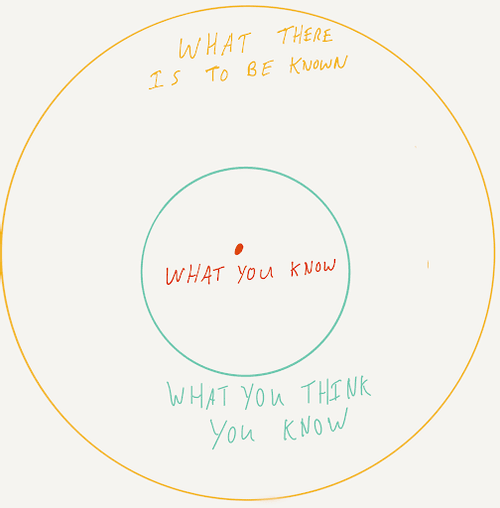Overconfidence Bias: What It Is and How to Overcome It
Curated from: taylorpearson.me
Ideas, facts & insights covering these topics:
4 ideas
·2.3K reads
3
Explore the World's Best Ideas
Join today and uncover 100+ curated journeys from 50+ topics. Unlock access to our mobile app with extensive features.
Overconfidence bias
Most people think they know more than they really do.
Researchers showed that people believe they understand familiar manufactured objects much better than they really do. For instance, if you think you understand how a can opener works, try to draw a diagram of a can opener on a piece of paper. If you can't draw, write out a detailed explanation. Then, find out how it really works.
130
882 reads
The details that form our reality
When we don't understand the details, it can cause much trouble. If a nation is overconfident that they will win a war, they will fight more wars. An investor that is to sure of their estimate of an asset's value will trade too much.
The world is too big to process and understand everything. We have to oversimplify the world to be able to function in it. The difficulty is that we don't think our models of how the world works are oversimplified. We believe they are correct. This creates a hidden risk.
134
539 reads
The hidden risk of not understanding the details of our reality
Focusing on specific details in a complex system while ignoring the amount of detail contained within the system may at first show a benefit. However, it can create a massive collapse in the long-run.
In the late 18th century, the German government wanted to grow "scientific forests" to track and harvest timber. Underbrush was cleared, and tree species reduced. The first planting did well because of nutrients that were still left in the soil. But the clearing of underbrush reduced insect, mammal, and bird populations essential to soil building. Pests had few enemies left and infected the entire forest, resulting in massive forest death across the country.
116
410 reads
Managing the overconfidence bias
- Embrace meta-rationality. Know the limits of your own understanding, know when to consult experts, which experts to defer to, and when to admit that something is impossible for anyone to know.
- Allow for uncertainty. Confident statements seem more promising but are open to hidden risks.
- Seek fingerspitzengefühl, roughly translated as intuitive knowledge. We all have some areas where we have a deep knowledge. We have to learn not to overestimate our own knowledge. To avoid overconfidence bias, learn more about your field of expertise.
- Build in a margin of safety. When an engineer designs a bridge that can support up to 100 cars at a time, they plan to hold a multiple of that amount, 200 or 300, as a margin of safety.
138
475 reads
IDEAS CURATED BY
Cherry Mary's ideas are part of this journey:
Learn more about personaldevelopment with this collection
Identifying and eliminating unnecessary expenses
How to negotiate better deals
Understanding the importance of saving
Related collections
Similar ideas
Read & Learn
20x Faster
without
deepstash
with
deepstash
with
deepstash
Personalized microlearning
—
100+ Learning Journeys
—
Access to 200,000+ ideas
—
Access to the mobile app
—
Unlimited idea saving
—
—
Unlimited history
—
—
Unlimited listening to ideas
—
—
Downloading & offline access
—
—
Supercharge your mind with one idea per day
Enter your email and spend 1 minute every day to learn something new.
I agree to receive email updates

